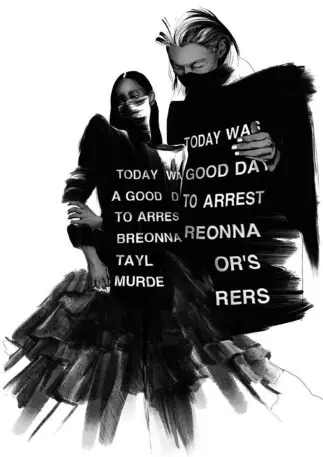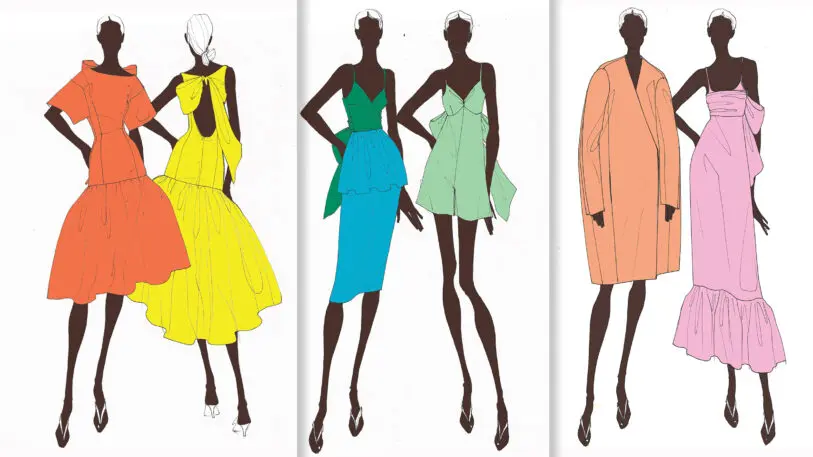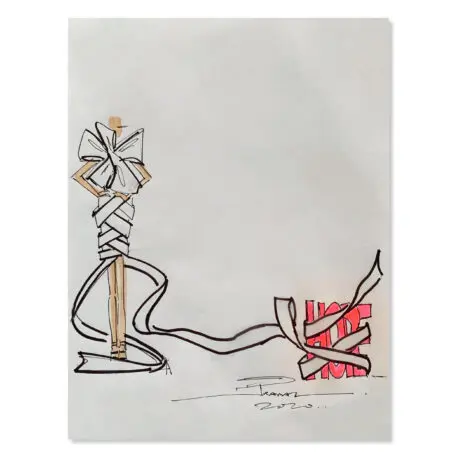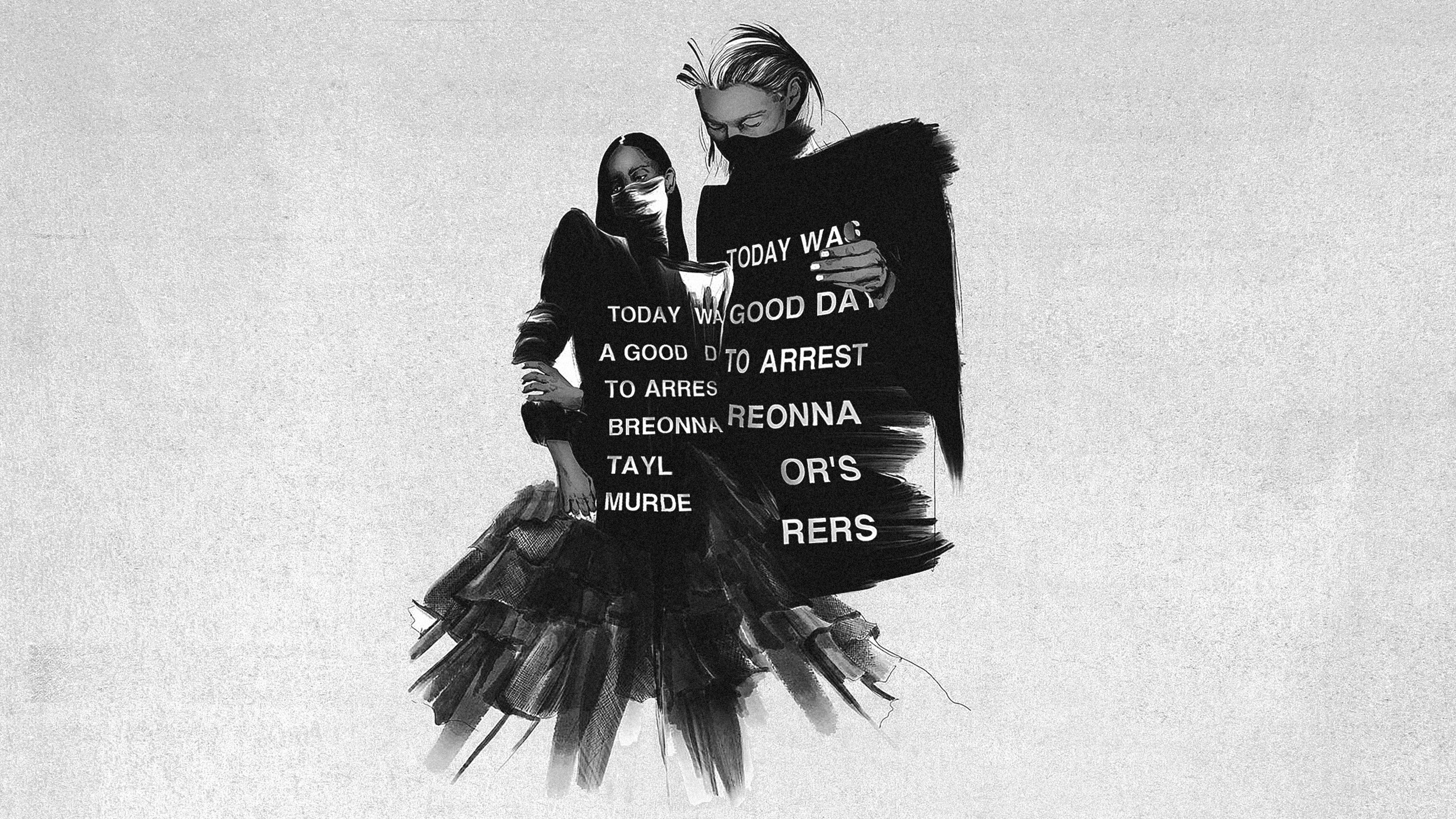COVID-19 has reshaped the world’s fashion tastes. As people around the globe went into lockdown, they traded in their statement pieces for loungewear and sweatpants. But fashion designers don’t think we’ll be in this state forever. And they’re already beginning to dream up what the universe of post-pandemic fashion could look like.
We reached out to a range of American designers, asking them to imagine the garments we’d want to wear on the other side of the pandemic. Virgil Abloh, Tracy Reese, and Prabal Gurung sent us exclusive sketches that represent their vision for the future of fashion. The sketches reflect their personal tastes and aesthetics, but they’re also an intimate insight into their worldview. The designers have taken their sketches in very different directions, from Abloh’s focus on the Black Lives Matter protests, to Gurung’s suggestion that fashion is always tethered to hope, to Reese’s optimism in the face of darkness.
Fashion illustration has a long history, going back to the 16th century, as a way for designers to think through their future creations. The process is a way for designers to explore new ideas, tap into their creativity, and discover new sources of inspiration. Here are three modern sketches from designers at the top of their game.

Virgil Abloh
Abloh designs across many media, from Mercedes cars to Evian water bottles, but he’s best known as a fashion designer. He launched his own fashion house, Off-White, in 2013, and in 2018, he was appointed creative director for menswear at Louis Vuitton. Many products he designs are emblazoned with words; when he puts these phrases in quotation marks, he means for them to be taken ironically. It’s notable, then, that the words on these garments aren’t in quotes. “The combination of the disproportionate impact of the pandemic and the extraordinary injustice that the Black community faces is causing a reckoning,” he says. “As a Black man who has known racism for my whole life, I want to use my voice to keep the pressure on in the fight for justice and equality.”

Tracy Reese
Reese has had a long, celebrated career in American fashion. She launched her eponymous label in 1998, and her fans include Michelle Obama, Sarah Jessica Parker, and Tracee Ellis Ross. Last year, she launched an eco-friendly label called Hope for Flowers that’s based in her hometown of Detroit and manufactured in Michigan workshops, where she employs women who are reentering the workforce and want to learn new skills.
Reese has always favored bright colors and feminine silhouettes, and these sketches encapsulate her point of view. They’re a reflection of her aesthetic and identity, but during this dark period, it’s also an audacious burst of optimism. In an email, she says she’s largely dressed for comfort and utility during the lockdown. Then, a few weeks ago, she and her sister tried on dresses together at a vintage store in Detroit. “I spent an hour trying on fun, special, delightful vintage pieces that lifted my spirits and reminded me why I love fashion!”
She believes that in the aftermath of the crisis, people will want similar moments of joy, and her sketches reflect this. “Fashion can help us transcend even the darkest of times,” Reese says. “I think post-COVID, my customers will really embrace clothing that is unique, special, colorful, fun, feminine and flirty, and hopefully sustainable. We will all want to celebrate.”

Prabal Gurung
Gurung is a Nepali American designer who debuted his eponymous label in 2009, after serving as Bill Blass’s creative director. He’s known for his luscious, fanciful evening gowns that frequently appear on the red carpet. His sketch centers around a large bow, a motif that appears frequently in his dresses, but this one is woven into the word “hope.” “This sketch was inspired by the idea that during difficult and trying times, hope is the ultimate resistance,” he explains. “I felt that we needed to wrap hope in a perfect bow and hold it close to our hearts.”
This week, Gurung launched a new label called iMPOWER, whose first collection is available exclusively through Walmart.com, and aims to democratize fashion and start conversations about important global issues. The designer frequently uses his work to channel his activism, advocating for gun control, body positivity, and the right to protest. And he believes fashion will continue to be a space of political self-expression. “In my opinion, the most stylish thing right now is individualism—and that is the true future of fashion,” he says. “I find hope in many places, but the one that sticks with me most is the feeling I get when I see people being their most authentic and engaged selves. It brings me so much joy and fills me with optimism.”
Recognize your brand’s excellence by applying to this year’s Brands That Matter Awards before the early-rate deadline, May 3.
